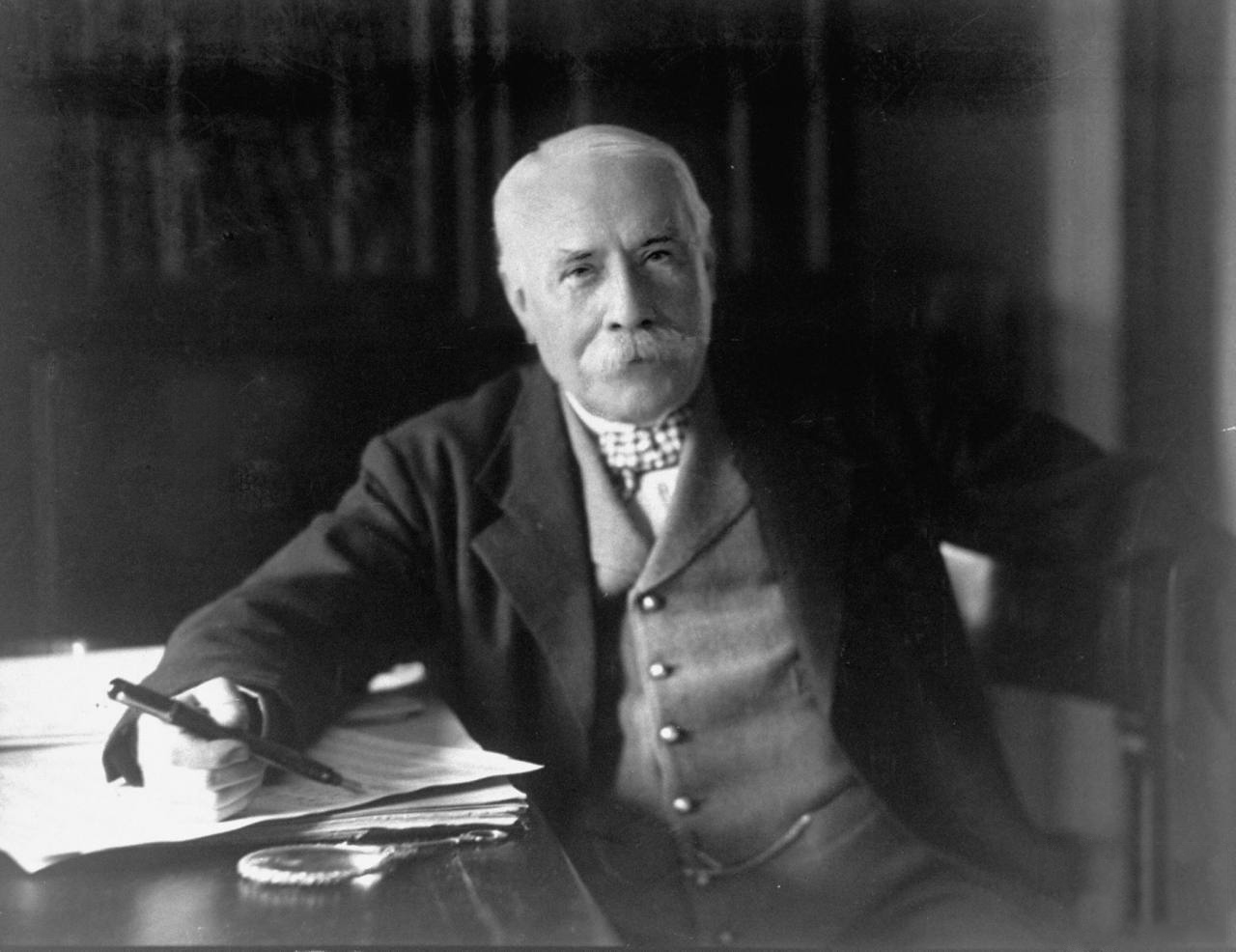The music of Sir Edward Elgar (1857-1934) is often characterized as stately and regal- the musical embodiment of everything British. You can hear this in the majestically celebratory final moments of the Enigma Variations or the Imperial March, Op. 32, music written for the 1897 Diamond Jubilee of Queen Victoria. Both pieces propelled Elgar to fame. The stirring Pomp and Circumstance Military Marches provide a glimpse of the self assurance, order, and security of the British Empire at its height.
But there’s a deeper side to Elgar’s music- a sense of introspection, loneliness, and even melancholy. This is what we hear most strikingly in the Cello Concerto in E minor, Op. 85. It was Elgar’s last significant work, written during the summer of 1919 at “Brinkwells,” his cottage near the village of Fittleworth, Sussex. The summer before, he had been able to hear the sound of distant artillery in the night, rumbling across the English Channel from France. The horrifying carnage of the first World War left Elgar depressed and unable to compose. The nineteenth century world he had known was quickly slipping away and the progressive thrust of music had pushed onward to the bold, new sounds of composers such as Schoenberg and Stravinsky. His popularity was in decline. Following the death of his wife in 1920, for all practical purposes, Elgar entered a permanent compositional silence. When the London Symphony Orchestra premiered Elgar’s Concerto with cellist Felix Salmond on October 26, 1919 to a less-than-full Queen’s Hall, the conductor Albert Coates did not afford the music the respect of adequate rehearsal time. Regarding the disastrous first performance, the critic Ernest Newman wrote,
There have been rumours about during the week of inadequate rehearsal. Whatever the explanation, the sad fact remains that never, in all probability, has so great an orchestra made so lamentable an exhibition of itself. … The work itself is lovely stuff, very simple – that pregnant simplicity that has come upon Elgar’s music in the last couple of years – but with a profound wisdom and beauty underlying its simplicity.
From its opening solo cadenza, the first movement of Elgar’s Cello Concerto is filled with voices of lament and nostalgia. An almost shell-shocked single viola line announces the movement’s wandering main theme (around the 1:33 mark). Listen to the way this theme develops as it is passed from one group of instruments to another, moving from gloomy acceptance to brief, anguished outbursts. Some of this piece’s most atmospheric details are barely audible, like the distant rumble of the tympani in this passage. Strangely, amid all of this darkness and sonic depth, there are also swirling comedy and frivolity. In these moments, we’re reminded that this music is filled with characters and distinct personas. Yet, at the end of the final movement, we suddenly find ourselves back at the opening cadenza. No sudden leap of transfiguration is possible- only the melancholy beauty of an eternal present.
This live performance took place in Brisbane, Australia in September, 2014. It features the extraordinary up-and-coming cellist Julian Schwarz. His father, conductor Gerard Schwarz, leads the Queensland Symphony Orchestra. Following the applause at the end, Schwarz performs solo Bach as an encore:
Additional Recordings
- Steven Isserlis with Richard Hickox and the London Symphony Orchestra (Virgin Classics) iTunes
- Yo-Yo Ma with André Previn and the London Symphony Orchestra (Sony Classical) iTunes
- Jacqueline du Pré with Sir John Barbirolli and the London Symphony (EMI Records) iTunes
- Julian Lloyd Webber with Yehudi Menuhin and the Royal Philharmonic Orchestra (Decca Music) iTunes
- A historical recording with the New Symphony Orchestra, conducted by Sir Edward Elgar
- Gerard and Julian Schwarz talk about the Elgar Concerto and the nature of their father-son collaboration


1 thought on “Elgar’s Cello Concerto: Elegy for a Vanishing World”